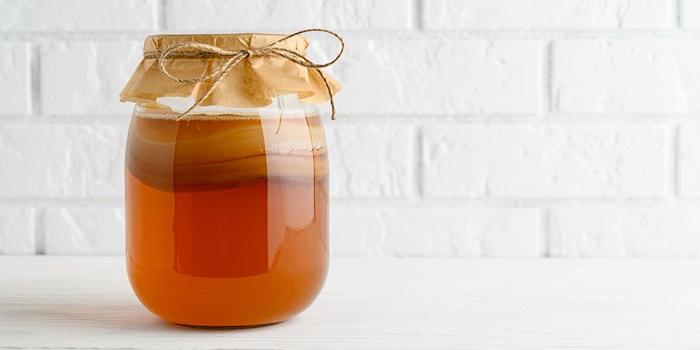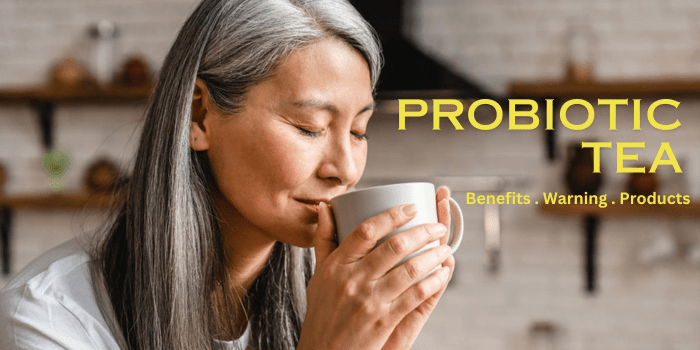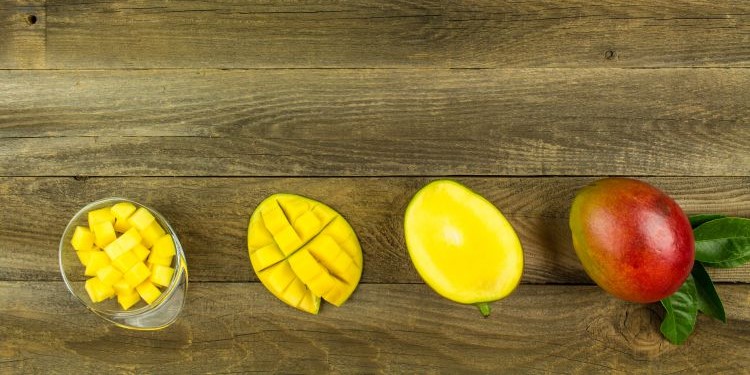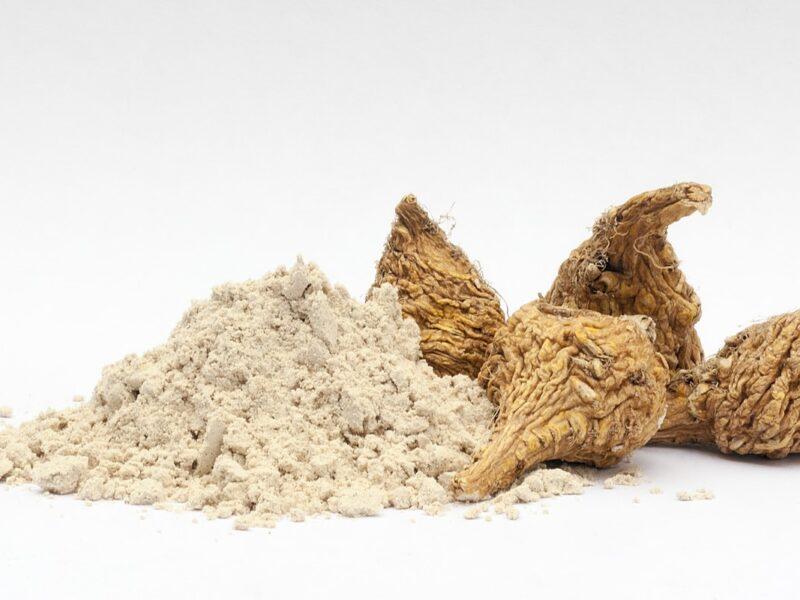Peppermint, chamomile, oolong, green, and black… We are a tea-drinking society! And that’s advantageous for our general health as well as our taste senses. For decades, people who enjoy tea, especially those from Eastern cultures, are constantly praising probiotic’s health benefits. These include relief from allergies, decreased headaches, better sleep, and mental benefits including lowered stress levels. Additionally, there are so many tea options available that practically everybody could find a flavor and outcome that they like.
Concurrently, the popularity of probiotic tea has grown as people have become more aware of the benefits of probiotics and gut health. However, what precisely is probiotic tea, along with how can it improve your general well-being?
We’ll address all of your inquiries regarding probiotic tea below, including its contents and benefits for immune system and digestive system health.
What Are Probiotics?

Most people typically think of bacteria in terms of filth and germs. Food poisoning, a cold, or worse can be caused by bacteria. However, that only scratches the surface of the whole bacterial picture. Numerous bacteria are “good” bacteria, which are essential to your general well-being.
Both probiotics, or beneficial bacteria, and pathogens, or harmful bacteria, are found naturally in your body. These microbes reside in your mouth, throat, eyes, nose, bladder, and genitalia in addition to being on your skin. Additionally, they populate your gut and coexist in a delicate equilibrium to form your gut microbiome, which is the collective term for all the microbes that reside there.
You need more good bacteria in your gut than bad bacteria in order to have optimal gut health. At that point, your immune system will be strengthened and your general health will benefit from the optimal functioning of your gut flora.
The harmful bacteria are going to outnumber the healthy bacteria in your gut microbiome when it is out of proportion. Dysbiosis, the term for this imbalance, can arise in two ways, which are described below.
Also Read: Digestive Enzyme supplements
Increase in Bad Bacteria
Your body can become infected with harmful bacteria in a variety of ways. The most typical ways are through your mucus membranes or a small puncture or scratch on your skin. If left unchecked, once it’s within your body, it can grow and eventually overwhelm the beneficial bacteria.
Reduction in Good Bacteria
Antibiotic use, which kills both kinds of bacteria, is the most frequent reason for a decrease in the amount of beneficial bacteria. The bad microbes will, however, proliferate faster and gain a greater grip in the stomach than the beneficial bacteria. Diets heavy in sugar and processed foods can also negatively impact your good bacteria, lowering their quantity and potency.
But whatever the reason, dysbiosis—an instability in your gut microbiome—can result in infections and disease. The best method to restore your gut health once this happens is to include probiotic-rich foods and supplements in your diet.
Eating foods high in probiotics is a terrific approach to rapidly and effectively increase the amount of beneficial gut bacteria. This has traditionally called for fermented foods and beverages including buttermilk, pickles, kimchi, and yogurt. Probiotic teas are among the newest and best alternatives for adding helpful bacteria to the intestinal microbiota.
Also Read: Top Rated Probiotic supplements
What are Probiotic Teas?
Regular tea that is infused with helpful bacterial strains and allowed to ferment is known as probiotic tea. The most popular among these is probiotic tea made from kombucha, however there are also some more recent types that we’ll talk about below. Drinking kombucha that contains probiotics increases and fortifies the amount of good bacteria in your intestinal microbiome.
Kombucha Probiotic Tea
For a long time, people have been drinking kombucha, a fermented tea, because of its various health benefits. Kombucha has become one of among the most prominent probiotic drinks since it’s simple to brew.
The tea becomes highly helpful bacterial during the fermenting process. This is largely Lactobacillus, a lactic-acid bacteria that is a probiotic that can be found in yogurt, miso, kefir, and other foods. This beneficial bacterium turns what may have been a regular black tea become probiotic tea.
The flavor of kombucha tea is earthy on its own. Manufacturers frequently incorporate fruit or various natural tastes during the fermenting process, as this may not be to everyone’s taste. Additionally, green tea may be used to make kombucha just as readily as black tea, which is how it’s normally manufactured.
Also Read: Peak Bioboost Reviews
Probiotic Tea Breakthrough
The most popular probiotic tea is kombucha, in part because of its temperature. Because it is kept chilled, the bacteria are able to flourish and live. Due to the fact that probiotics can be destroyed by even very low heat—140°—hot teas infused with them have not always proven as shelf stable.
But things are starting to change here. Recent findings indicate that adding Bacillus coagulans, a particularly vigorous strain of good bacteria, to boiling water does not eliminate its benefits for gut health.
Now that there is a probiotic ingredient that can be boiled in hot water, you can make probiotic tea out of practically any flavor of regular tea that you can get in your neighborhood grocery shop. Ginger probiotic tea, lavender probiotic tea, and lemon probiotic tea are a few of the more well-liked hot probiotic drinks.
Another well-liked option for probiotic tea is green tea, which is good hot or cold. It frequently serves as a substitute for the kombucha black tea. Matcha is a fashionable variety of green tea. Since matcha contains more caffeine than ordinary green tea, a lot of people have started drinking matcha instead of coffee lately.
Also Read: Synogut Reviews
Benefits of Probiotic Tea
Amazingly, the stomach contains between 70 and 80 percent of your body’s immune system. Therefore, a healthy gut microbiome and a better, more robust immune system are both correlated with the growth of beneficial bacteria.
By supporting your intestinal health with probiotic tea, you can improve your immune system, lessen the symptoms of infections and illnesses, and heal from illnesses faster.
Additionally, combining green tea with probiotic bacteria will increase the health benefits. Polyphenols are an additional potent ingredient. These are naturally occurring bioactive substances found in plant-based diets, in this example, the leaves of green tea. Strong antioxidants, polyphenols ward off dangerous free radicals and strengthen your body’s defenses against illness.
Green tea also helps decrease cholesterol and blood pressure, according to studies. Additionally helpful for promoting a healthy digestive system and relieving constipation is green tea.
Herbal teas with advantages that change depending on what’s in them are another type of probiotic tea. A probiotic tea infused with lavender, for instance, has a relaxing effect, enhances sleep, elevates mood, and can ease stomach issues.
Benefits of probiotic lemon tea include weight loss, decreased insulin resistance, relief from nausea, and an additional immune system boost thanks to the lemon.
Also Read: Puravive Reviews
Possible Side Effects of Probiotic Tea
Notice that there are drawbacks to probiotic tea. There is caffeine in certain probiotic teas. Even if these are not as concentrated as coffee, it remains important to keep an eye on them. Insomnia, dehydration, headaches, and other symptoms might result from consuming too much caffeine.
Probiotic tea, particularly kombucha, has become so popular that a plethora of recipes is available online. There’s a chance you’ll be enticed to try it from pals who brew it yourself. If you are drinking a home-brewed kombucha, cautious of the brewer. Although kombucha provides an ideal environment for the growth of beneficial bacteria, an unskilled brewer may allow harmful bacteria to proliferate as well.
Probiotic teas may potentially have a high sugar content. Manufacturers frequently add sweets to tea because of its strong flavor in an attempt to make it appealing to consumers. Consuming excessive amounts of sugar can negate the health benefits associated with probiotic tea because sugar does not constitute a meal that is good for the gut. Additionally, high blood sugar levels might interfere with your immune system, causing it to be harder for you to fight off infections or disease.
Also Read: LeanBioMe Reviews
Concluding Remark
Cheers to your drink! Drinking probiotic tea can help you increase the amount of good bacteria in the gut microbiome, which will improve your immune system and digestive health. Tea also has its own health benefits, which makes it a potent wellness choice. Probiotic tea provides a delicious and effective way to optimize your intestinal health and boost your immune system.
![]()

Hi, I am Rowan Briggs, and I am a professional content writer with HonestProReview. I joined this team 2 years ago in the year 2019. Being a graduate from University of Vanderbilt and deep interest in bodybuilding and fitness, I worked with lots of fitness centers as a trainer and consultant. At HonestProReview, I focus on sharing informative content related to body fitness, muscle building, weight loss, and fat burning along with reviewing trending weight loss and muscle building supplements.



